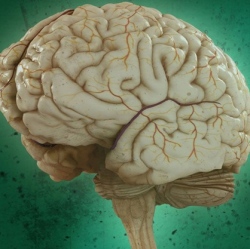
About 1 in 5 people experience tinnitus, the perception of a ringing sound that isn’t really there. Now, researchers have taken advantage of an opportunity to record directly from the brain of a person with tinnitus in order to find the brain networks responsible. Observations reveal how different tinnitus is from normal representations of sounds in the brain.
"Perhaps the most remarkable finding was that activity directly linked to tinnitus was very extensive, and spanned a large proportion of the part of the brain we measured from," says Will Sedley of Newcastle University. "In contrast, the brain responses to a sound we played that mimicked [the subject’s] tinnitus were localized to just a tiny area."
In the new study, Sedley and The University of Iowa’s Phillip Gander contrasted brain activity during periods when tinnitus was relatively stronger and weaker. The study was only possible because the 50-year-old man they studied required invasive electrode monitoring for epilepsy. He also happened to have a typical pattern of tinnitus, including ringing in both ears, in association with hearing loss.
"It is such a rarity that a person requiring invasive electrode monitoring for epilepsy also has tinnitus that we aim to study every such person if they are willing," Gander says.
The researchers found the expected tinnitus-linked brain activity, but they report that the unusual activity extended far beyond circumscribed auditory cortical regions to encompass almost all of the auditory cortex, along with other parts of the brain.
The discovery adds to the understanding of tinnitus and helps to explain why treatment has proven to be such a challenge, the researchers say.
